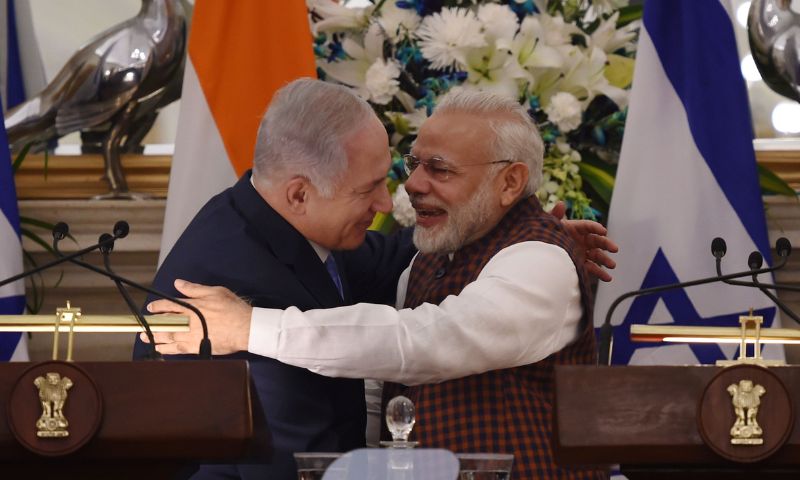MADRID, Spain: Cargo vessel Borkum paused off the coast of Spain, near Cartagena, on May 15, where protesters waving Palestinian flags called for an inspection based on suspicions that it carried weapons bound for Israel.
Leftist European Parliament members wrote to Spanish President Pedro Sánchez, urging the ship to be prevented from docking. They claimed that allowing such a ship to dock would be supporting a country “under investigation for genocide against the Palestinian people.” Before Spain could act, the Borkum continued its journey to the Slovenian port of Koper, raising suspicions further.
Documents obtained by Al Jazeera revealed that the Borkum was carrying explosives from India to Israel’s port of Ashdod. The cargo included rocket engines, rockets with explosive charges, and other military components. The documentation indicated a high level of confidentiality, forbidding any mention of IMI Systems or Israel, and suggesting a deeper, covert network of arms supply.
Despite denials from MLB Manfred Lauterjung Befrachtung, the commercial manager of the ship, about carrying weapons, another cargo ship from India, the Marianne Danica, faced similar scrutiny. It was denied entry to Cartagena for carrying 27 tonnes of explosives to Israel’s port of Haifa. Spain’s Minister of Foreign Affairs confirmed this, adding to the evidence of India’s quiet military support to Israel amid the ongoing conflict in Gaza.
Zain Hussain, a researcher at the Stockholm International Peace Research Institute (SIPRI), highlighted the lack of transparency in India’s arms transfers, making verification difficult. However, he noted the long-standing military collaboration between India and Israel, making it plausible that Indian-made components are used in Israel’s military actions in Gaza.
This cooperation extends beyond explosives. The remains of a missile used by Israel in Gaza, identified as “Made in India,” underline the significant role of Indian-made military technology. Premier Explosives Limited, an Indian company, has acknowledged exporting rocket motors and explosives to Israel, specifically for the Barak missile system, a joint India-Israel project.
India’s collaboration with Israel is not limited to missiles. In 2018, Adani Defence & Aerospace and Israel’s Elbit Systems opened a facility in Hyderabad to manufacture Hermes drones. These drones, used for surveillance and potential attack roles, signify a deep technological partnership. Although Adani Group stated that their drones are for non-combat operations, the overlap between Indian and Israeli military production raises questions about their actual use.
India’s foreign policy has traditionally emphasized dialogue and negotiation over conflict, advocating peace in international forums. This stance is reflected in its calls for a ceasefire in Gaza and a balanced approach in conflicts like Russia-Ukraine. However, the covert arms supplies to Israel challenge this narrative and complicate India’s diplomatic positioning.
The relationship between India and Israel has evolved significantly since India recognized Israel in 1950. Formal diplomatic relations were established in 1992, with a shift from a pro-Arab stance to a more balanced approach. The strategic partnership has deepened, particularly under Prime Minister Narendra Modi, who has fostered closer ties with Israel, balancing it with India’s historical support for Palestine.
India’s recent diplomatic maneuvers, including abstentions and votes at the United Nations, reflect a nuanced approach. Modi’s government has balanced its strategic interests in the Middle East, maintaining relations with both Israel and the Gulf Cooperation Council (GCC) countries. This balancing act is crucial as India navigates its role on the global stage amidst complex geopolitical tensions.
For instance, India’s stance on Israel was reflected when it abstained from a UN General Assembly vote on a resolution calling for an “immediate, durable, and sustained humanitarian truce.” External Affairs Minister S. Jaishankar justified the abstention by citing India’s history of being a major victim of terrorism, expressing sympathy for Israel. However, this abstention was later followed by a vote in favor of a UNGA resolution calling for a ceasefire in Gaza, showing India’s complex diplomatic balancing act.
Despite the intricate balancing, the close relationship between Modi and Israeli Prime Minister Benjamin Netanyahu, who refers to Modi as a “friend,” suggests a deep personal and strategic alignment. However, the Modi administration’s relationship with Israel must be carefully balanced against its strategic interests in the Gulf Cooperation Council (GCC) countries, which are critical trade partners for India.
India’s complex position is further complicated by its internal political dynamics. The Bharatiya Janata Party (BJP), under Modi’s leadership, has leaned towards a pro-Israel stance. However, the BJP’s recent loss of majority in the lower house of Parliament means it must rely on coalition partners, which could necessitate a more nuanced foreign policy approach to maintain domestic and international alliances.
The episodes involving the Borkum and Marianne Danica highlight the intricate and often opaque nature of international arms transfers. India’s involvement in supplying arms to Israel, despite its official stance advocating peace, underscores the complexities of modern diplomacy and the hidden facets of strategic partnerships. As global scrutiny increases, the need for transparency and adherence to international norms becomes ever more critical. The dual narratives of advocating for peace while covertly supporting military actions present a challenging dichotomy for India’s foreign policy, emphasizing the intricate dance of international diplomacy in the 21st century.

























